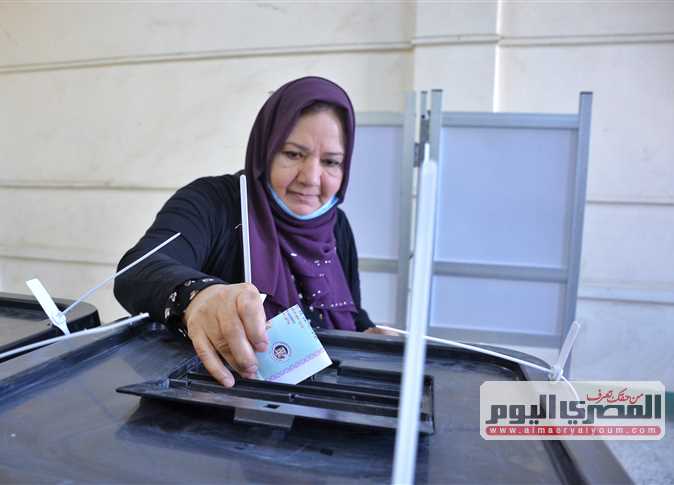As Mohamed ElBaradei gets ready to board his flight from Vienna to Cairo Wednesday, questions linger regarding future moves for his nascent opposition movement vis-à-vis a regime that shows no willingness to make reform concessions.
For several months, followers of the former head of the International Atomic Energy Association (IAEA) have been collecting signatures in favor of his reform petition, in which ElBaradei provides seven demands ahead of the parliamentary poll slated for late November. His plea includes ending the state of emergency, amending the constitution to allow for real multi-party presidential elections, ensuring judicial supervision of the vote, and putting an end to election fraud.
While the number of signatures keeps rising, there is no indication that the ruling National Democratic Party (NDP) will heed any of these demands. Earlier this month, spokesman of the outgoing parliament Fathi Sorour ruled out introducing changes to the constitution.
“All other ways are blocked. Freedom has a cost and people should be ready to pay that cost,” said Hassan Nafae, coordinator of the National Association for Change (NAC), the group formed under ElBaradei’s auspices in April.
“We tell people frankly that the state will not necessarily heed our demands because the NDP does not respect the people’s will. So we may ask [people] to demonstrate on the street and things may escalate to civil disobedience,” added Nafae.
However, the NAC has not decided when this escalation may occur, according to prominent NAC leader George Ishaq.
“Civil disobedience is a big issue and it needs preparation. We are working on that,” said Ishaq.
So far, the NAC has collected nearly 800,000 signatures. But convincing signatories of engaging in open protests remains beyond the group’s capabilities, according to Amr Elshobaki, an expert with al-Ahram Center for Political and Strategic Studies.
“Civil disobedience is a very difficult challenge. There is no indication that 80,000 out of the 800,000 signatories would take to the street,” said Elshobaki.
“It is hard to do that under the current regime and given the nature of the signatories. They are ready to sign but they are not ready to take to the street,” he added.
At least 600,000 out of the group’s 800,000 sympathizers belong to Egypt's largest and most organized opposition faction, the Muslim Brotherhood, which started to collect signatures in support of ElBaradei's reform demands through its website in July. But the Nobel Prize laureate should not rely too much on the Brotherhood's ability to mobilize in large numbers, said Elshobaki.
“The Muslim Brotherhood have their own calculations and they won’t take to the streets according to ElBaradei’s calculations,” explained Elshobaki.
Although Brotherhood officials consistently claim full endorsement of pro-democratic demands, the group has been criticized for not calling upon its large support base to take to the street. According to experts on the nation’s oldest Islamist group, the Muslim Brotherhood remains reluctant to mobilize the masses for fear of antagonizing the regime and provoking a brutal crackdown like that of the 1950s and 1960s.
ElBaradei’s visit comes in the midst of preparations for November's parliamentary poll. Last week through his twitter account, ElBaradei renewed his call for opposition parties to boycott elections. The 68-year-old former diplomat says the opposition should not engage in elections that are not fully monitored by the judiciary.
“The boycott is a feasible and viable option provided that all opposition groups agree on that,” said Amr Hamzawy, an expert with Carnegie Endowment for International Peace. “Otherwise, parties will be granting the regime legitimacy.”
In 2005, the parliamentary poll was reportedly marred by fraud and violence that claimed 13 lives. There were also reports of police intimidation toward supporters of NDP contenders. All these accounts drew significant international attention and elicited criticism from the US administration.
“This time is different from 2005. The international community is not concerned with democracy anymore. Even if the election is marred by violence and vote rigging, the international community will not pay attention. So boycotting may draw more attention than participating,” added Hamzawy.
So far, there is no consensus among the opposition to give up the poll. The nation’s two largest opposition parties Wafd and Tagammu are expected to participate. The Muslim Brotherhood is not yet decided on whether to boycott.
“We should not look down upon those who will participate and accuse them of being acquiescent,” said al-Ahram's Elshobaki. “They believe that things are changing and they should get engaged with new realities and change the system from within.”
This is ElBaradei’s first visit since June. He is expected to hold two events in Cairo–an iftar with his young followers on September 6 and possibly a supper with labor unionists on September 7, according to his brother Ali ElBaradei.
While NAC sources say the former IAEA head will leave in ten days and come back for a longer stay in October, his brother says he has not specified his departure date yet. Many of ElBaradei’s supporters have criticized him for not settling in Egypt and accused him of being reluctant to dedicate his full time and attention to the reform call.
“His presence would have been better because he would have gone out to people, discussed problems with them," said Nafae. "If people could see him and talk with him directly, they would feel that he is the true leader of change and this will serve the project for change better.”
Earlier this year, ElBaradei drew local and international attention when he said he would vie for the presidency in 2011 if fair and free elections were guaranteed. Upon this announcement, dozens of opposition figures and hundreds of youths anxious to find a credible alternative to the existing regime, rallied around him.
“The mobilization that ElBaradei engendered in the beginning is over,” said Hamzawy.
“Now, it is a one-man show. ElBaradei does not coordinate with other opposition players including opposition parties and movements,” contended Hamzawy.
Elshobaki is not on the same wavelength as Hamzaway. “The fact that ElBaradei is not involved in the details of the involvement game is positive,” he said.
“The political game in Egypt has no rules and it drains people and makes them get consumed in internal conflicts and exchanges of accusations,” said Elshobaki.




